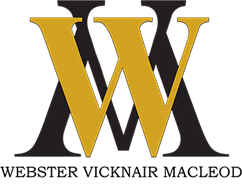When it comes to medical malpractice cases, the stakes are high, and the legal landscape can be complex to navigate. One of the most significant assets that can tip the scales in favor of either the plaintiff or defendant is the presence of expert witnesses. These knowledgeable professionals provide specialized insights that are crucial in determining whether a medical professional's actions constitute negligence or not. In this article, we'll explore the critical role of expert witnesses in medical malpractice cases, discuss common types of expert witnesses, and provide guidance on finding and hiring them.
The Crucial Role of Expert Witnesses
Expert witnesses are individuals who possess specialized knowledge, skill, experience, or education in a particular field relevant to a legal case. In medical malpractice cases, these witnesses bring a wealth of understanding to the medical field to shed light on whether the standard of care was met and if the actions of the medical professional involved were negligent.
Imagine a scenario where a patient alleges that their surgeon failed to follow proper protocol during surgery, resulting in complications. An expert witness in this case could be a board-certified surgeon with extensive experience in the same field. This expert would provide an informed opinion on whether the surgeon's actions aligned with industry standards and whether the alleged negligence directly contributed to the patient's complications. The testimony of such an expert can significantly impact the outcome of the case.
Types of Expert Witnesses
Expert witnesses in medical malpractice cases can encompass a variety of disciplines, each bringing a unique perspective to the proceedings. Here are some common types of expert witnesses often involved in such cases.
Medical Professionals
These witnesses include doctors, nurses, specialists, and other healthcare professionals who can evaluate whether the care provided meets the appropriate standard. They can address issues ranging from surgical procedures to diagnostic accuracy.
Accident Reconstruction Specialists
In cases where medical negligence resulted in an accident, such as a car crash caused by a driver under the influence of medication, accident reconstruction specialists can provide insights into the sequence of events leading up to the incident.
Forensic Experts
Forensic pathologists and toxicologists are often called upon to determine the cause of injury or death, especially in cases involving medication errors or wrongful death.
Economic Experts
In cases where the plaintiff is seeking compensation for medical expenses, loss of income, or other financial damages, economic experts can calculate and present the projected financial impact of the negligence.
Mental Health Professionals
In cases where emotional distress is claimed as a result of medical negligence, psychologists or psychiatrists can provide assessments of the plaintiff's mental state.
Finding and Hiring Expert Witnesses
Securing the right expert witness for your medical malpractice case requires careful consideration. Here's a step-by-step guide to help you through the process:
- Identify Your Needs: Determine the specific areas of expertise required for your case. Consider the medical aspects involved and pinpoint the type of expert witness you need.
- Research: Look for potential expert witnesses through professional organizations, academic institutions, online directories, and recommendations from colleagues in the legal field.
- Evaluate Qualifications: Once you've identified potential candidates, thoroughly review their qualifications, experience, publications, and previous testimonies. This will help you gauge their credibility and expertise.
- Interview: Conduct interviews with your shortlisted candidates. Discuss the details of your case, ask about their familiarity with similar cases, and assess their ability to communicate complex concepts clearly.
- Check References: Reach out to references provided by the expert witnesses. This step is essential to validate their experience and professionalism.
- Agreement and Contract: Once you've selected an expert witness, ensure that the terms of their engagement are clearly outlined in a contract. This should include their compensation, responsibilities, and expectations.
- Preparation: Collaborate closely with your chosen expert to ensure they have all the necessary information about the case. This will allow them to provide a well-informed and compelling testimony.
Expert witnesses are invaluable assets in medical malpractice cases, bringing specialized knowledge and experience to provide clarity in complex medical matters. Their insights can make a decisive difference in the outcome of these cases, providing essential evidence to establish whether negligence occurred. By understanding the various types of expert witnesses and following a systematic process to find and hire them, legal teams can enhance their chances of building a strong case that stands up to scrutiny in court.
How The Experienced Attorneys at WVM Can Help
In a personal injury case, the combined efforts of expert witnesses and experienced attorneys play a crucial role in ensuring a strong and effective legal strategy. Webster Vicknair MacLeod, a renowned law firm, understands the significance of this collaboration in achieving favorable outcomes for their clients. The attorneys at Webster Vicknair MacLeod bring a wealth of experience and legal expertise to the table. Here's how their involvement complements the efforts of expert witnesses:
- Case Assessment: Attorneys meticulously assess the details of the case and identify the areas where expert opinions are needed. They collaborate with experts to formulate a strong case strategy that highlights key points to support their client's claims.
- Expert Selection: Attorneys have an extensive network of reliable and credible expert witnesses. They choose experts who are well-versed in the specific nuances of the case, ensuring their testimony carries weight in court.
- Preparation: Attorneys work closely with expert witnesses to prepare them for trial. This involves helping experts refine their testimony, addressing potential challenges from opposing counsel, and ensuring their opinions are presented clearly and persuasively.
- Legal Strategy: Attorneys integrate expert opinions into a comprehensive legal strategy. They use these opinions to build a persuasive narrative that supports the plaintiff's claims and bolsters their chances of obtaining a favorable outcome, whether through negotiation or litigation.
- Cross-Examination: During the trial, experienced attorneys skillfully cross-examine opposing experts to highlight inconsistencies or weaknesses in their testimony. This can be crucial in discrediting the opposing side's arguments and strengthening the plaintiff's position.
In essence, the synergy between expert witnesses and the seasoned attorneys at Webster Vicknair MacLeod enhances the overall strength of the personal injury case. Their combined efforts provide a solid foundation for pursuing compensation, navigating legal complexities, and ultimately achieving justice for their clients.


